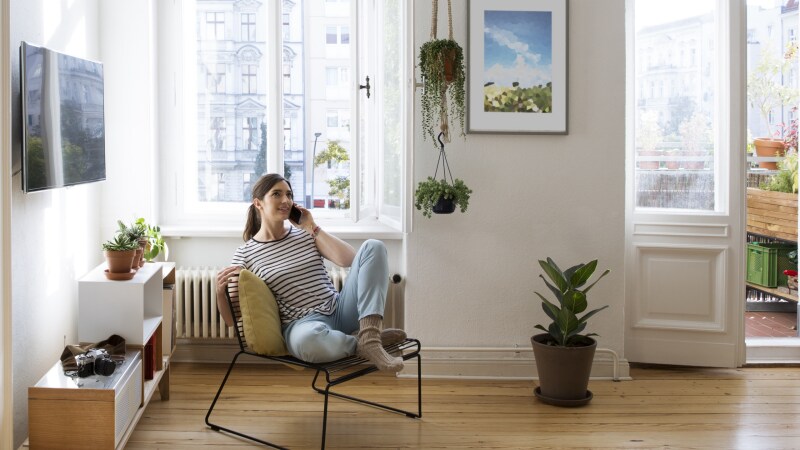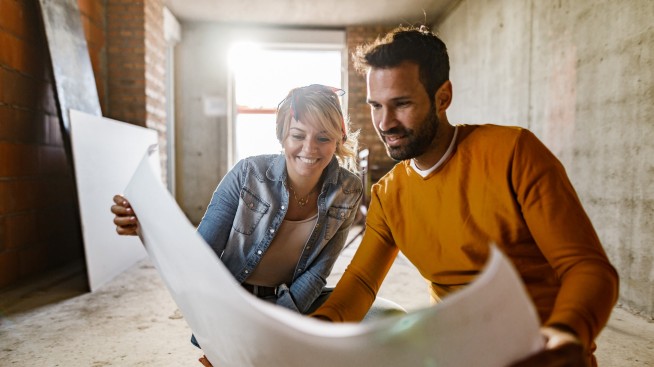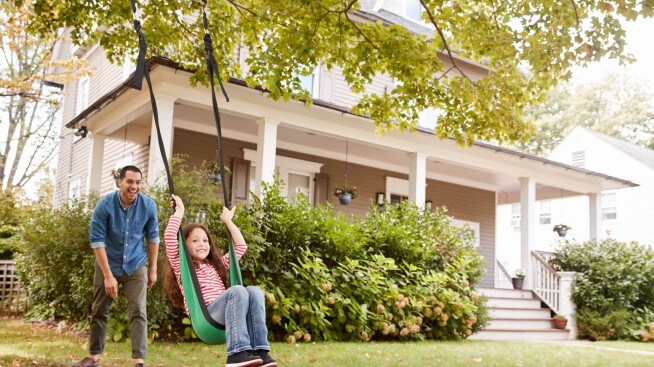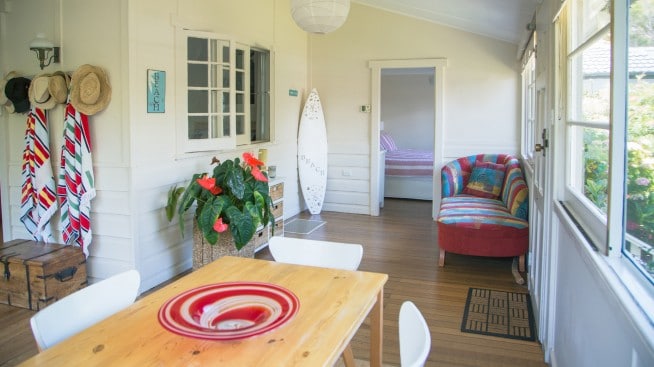Should you buy a second home? Here’s what to consider

- In real estate, second homes are different from investment properties. Second homes are properties you plan to stay in part-time.
- Second homes usually require larger down payments, strong credit scores and a good debt-to-income (DTI) ratio. The specifics will vary by lender.
- Before committing to a second home, you should consider how it will impact your lifestyle, how you’ll manage the property and how you’ll afford additional expenses—like property taxes and insurance.
Deciding whether to invest in a second home offers many potential upsides, but it’s a big financial commitment with plenty of risks. You must evaluate whether you can truly afford a second home and other often-overlooked pros and cons.
What does second home mean in real estate?
“Second home” and “investment property” are often used interchangeably, but they actually mean different things. A second home means you plan to stay in the property at least part-time. The classic example is a vacation home.
Investment properties are bought solely to be used for profit. The two most common ways this happens are renting out a property full-time or making upgrades and flipping it. The key point is investment properties are purchased without the intent to stay in them.
It’s possible to rent out a second home when you aren’t staying there—for example, if you list it on Airbnb when you know you won’t be occupying it. What makes it a second home is that you do stay there part-time.
Can you afford a second home?
One of the first things you should analyze when considering a second home is whether you can afford one. Keep in mind there will be ongoing expenses even if you pay all cash upfront. Here are some questions to help you understand the total cost of a second home.
Can you qualify for another mortgage?
Unless you have the cash on hand to purchase a second home outright, you’ll need to qualify for a second mortgage. Here’s what lenders will review:
- Credit score: The stronger your credit score, the more likely you’ll be approved and the better terms you’ll qualify for.
- Debt-to-income (DTI) ratio: This is especially important if you’re still paying off another mortgage. Your lender will want to ensure you have enough money left after covering your other expenses to pay your mortgage.
- Down payment: Down payment requirements are almost always higher for second homes.
- Cash reserves: Some lenders require you to have enough cash stockpiled to afford a few months of mortgage payments before they’ll approve a new loan. This requirement varies widely by lender.
The exact requirements will differ by the lender you choose and the type of loan you apply for.
How will purchasing a second home affect your lifestyle?
Just because a lender approves you for something doesn’t mean it’s a good idea in practice. It's a good idea to think about how you would manage your budget each month.
- How does this affect your retirement savings?
- Will you be able to maintain payments on any outstanding debt, like student loans?
- Will you have to cut back on cost of living expenses, like groceries or gas? How realistic is that?
- Will you need to cut back on entertainment spending? Is there a point where this affects your interest in a second home?
- Do you have enough for an emergency fund? What would you do if a car breaks down or there’s a medical emergency?
Budgeting for a second home payment every month could put a lot of strain on your finances.
Consider using an affordability calculatoraffordability-calculator,tools_and_calculator_hl000066 to map out the potential ripple effects.
Can you afford recurring expenses?
Here are some common hidden expenses that can come with second homes. Make sure you also have a plan for these so you aren’t caught by surprise.
- Homeowners association (HOA) fees
- Buying furniture and household items
- Repairs and maintenance
- Extra insurance (think flood or hurricane insurance)
- Property management fees (if you rent the home)
- Property taxes
Advantages of buying a second home
Let’s take a look at some of the upsides that come with buying a second home.
Owning a vacation home
Having your own vacation home means you don’t have to worry about booking accommodations when you vacation there. Whether it’s a property by the beach, a lake or somewhere else you find relaxing, having a place to call your home away from home can make vacations much more enjoyable.
Earning rental income
Owning a second home may allow you to rent it out when you're not staying there. The restrictions around renting out a second home vary widely by state. Many homeowners choose to do this, and with sites like VrboⓇ and Airbnb, short-term rentals are becoming more popular than ever. This can help you cover the payments on your second mortgage.
Investing for the long-term
Ideally, both the home’s value and your equity will grow over time. Additionally, owning a second home adds a tangible asset to your investment portfolio, which can be passed down to your family. It may also provide security, potentially giving you an extra asset to tap into during financial emergencies.
Disadvantages of buying of a second home
Deciding whether to invest in a second home comes with plenty of risk, like any big investment. Here are some of the most important ones to consider upfront.
Paying high upfront costs
Whether it’s a large down payment or an all-cash purchase, purchasing a second home requires a considerable amount of money. The goal is for this investment to pay off over time, but be mindful that it may take years for you to see a positive return on your investment.
Taking on more debt
Taking out another mortgage to afford a second home will significantly increase your debt load. This will impact your DTI ratio and may limit your ability to invest in other opportunities.
There’s also the additional financial burden that comes with a second mortgage. If you’re unable to make payments on one of them, it could put you at risk of foreclosure and losing one of your properties.
Managing ongoing expenses
Just because you don’t live in the home full-time doesn’t mean the bills won’t come every month. From potential HOA fees to extra insurance, the monthly expenses can add up quickly. You also need to account for seasonal events, like hurricane damage, if the property is in a coastal area.
In summary
Buying a second home is a big decision. It comes with a significant upfront investment and a lot of risk. That said, there’s ample opportunity for reward, including potential rental income, rising property values and increasing equity. If you’re ready to take the next step, apply for preapproval on a second mortgage today.



